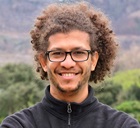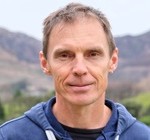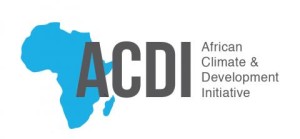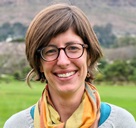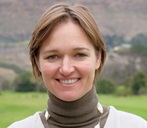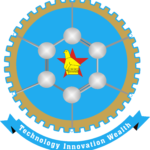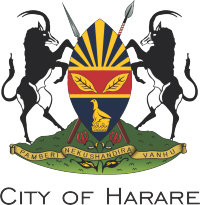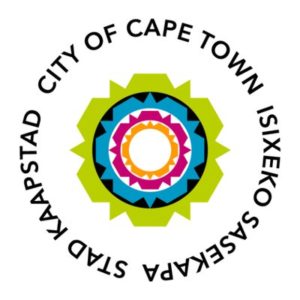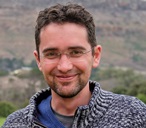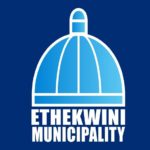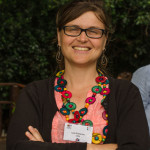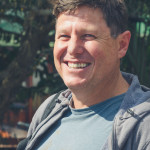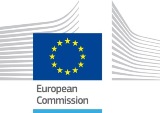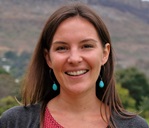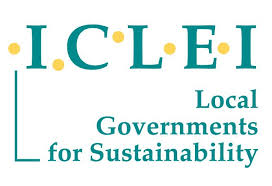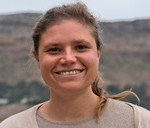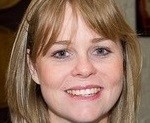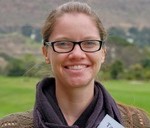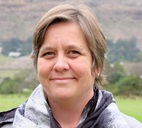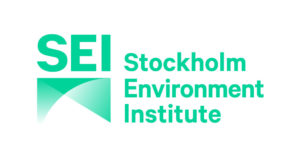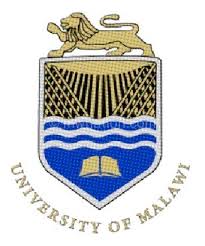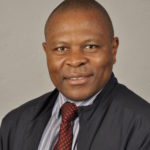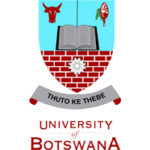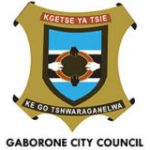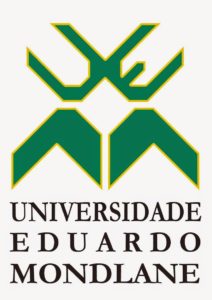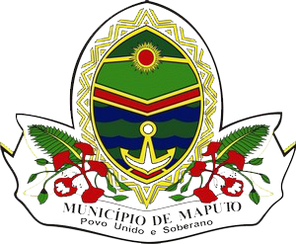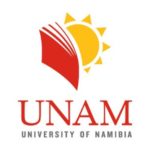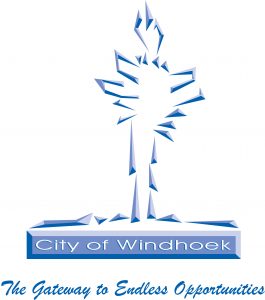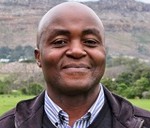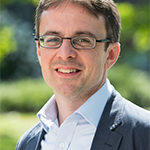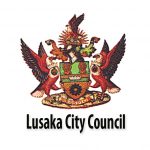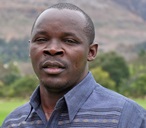Climate System Analysis Group
CSAG seeks to apply our core research to meet the knowledge needs of responding to climate variability and change. CSAG is involved in driving the core climate science research within FRACTAL, along with UKMO and others.
![]()
African Centre for Cities
The African Centre for Cities (ACC) is an interdisciplinary research and teaching programme focused on quality scholarship regarding the dynamics of unsustainable urbanization processes in Africa, with an eye on identifying systemic responses.
The FRACTAL research project aims to provide sampled cities in southern Africa with relevant and appropriate climate information in order to facilitate climate sensitive development decisions and so contribute to the building of more resilient cities. This necessitates a critical understanding of the governance and institutional arrangement of these cities. The mission of the ACC is to “facilitate critical urban research and policy discourses for the promotion of vibrant, democratic and sustainable urban development in the global South from an African perspective.” As such, ACC benefits from engaging in a research project that focuses on climate change in development decision-making in African cities by gaining a greater depth of knowledge about the potential responses to climate change in cities. Since FRACTAL is working with academic institutions and municipalities in various cities, the partnership with CSAG will contribute to the ACC’s strategic goal of strengthening knowledge networks in Africa to undertake urban research and training.
Represented by:African Climate & Development Initiative
ACDI is interested in how climate and development concerns intersect, which is at the heart of FRACTAL. ACDI focuses on building networks around climate and development across southern Africa and therefore aims to bring its existing networks in contact with FRACTAL and use the FRACTAL networks to expand ACDI activities. ACDI plans to help provide strategic direction to FRACTAL particularly around the interlinkages between climate science and applications.
Represented by:Chinhoyi University of Technology (Zimbabwe)
Chinhoyi University of Technology will work with other FRACTAL partners to co-produce climate knowledge, and transfer lessons learned in FRACTAL cities.
Represented by:City of Cape Town, Environmental Policy & Strategy
Cape Town is one of the self-funded cities involved in FRACTAL. To date, government officials from the City of Cape Town worked with the FRACTAL team to update climate projections for Cape Town using a climate narratives approach.
Represented by:Coordination, Capacity Development and Knowledge Exchange Unit
The CCKE unit coordinates activities across the different Future Climate for Africa (FCFA) thematic and geographic research clusters, develops the capacity of key stakeholders, and produces and distributes news, features and reports on FCFA’s work. The main aim of the CCKE unit is to create enabling environments, which will help to ensure that improved scientific understanding and prediction of African climate variability and change leads to better decision-making when coupled with strengthened user knowledge and skills.
CCKE and FCFA are affiliated with SouthSouthNorth.
Represented by:Council for Scientific & Industrial Research
The Council for Scientific and Industrial Research (CSIR) is a leading scientific and technology research organisation, implementing projects throughout Africa and making a difference in people’s lives. The CSIR is committed to supporting innovation in South Africa to improve national competitiveness in the global economy. Science and technology services and solutions are provided in support of various stakeholders, and opportunities are identified where new technologies can be further developed and exploited in the private and public sectors for commercial and social benefit.
Areas of interest for CSIR include:
– Studying teleconnections of global modes of variability to southern African climate – of particular interest to their team are instances when the ENSO signal fails – understanding why this happens – and to study the stability of the ENSO signal in southern African climate under enhanced anthropogenic forcing.
– Remote-domain vs within-domain forcings. Once again CCAM may be a useful tool, given it’s flexible spectral nuding options – one can design a series of experiments giving internal-domain processes increasing degrees of freedom, and explore effects on variability, deep convection, etc.
– Exploring advantages to be gained from cloud-resolving, nonhydrostatic simulations.
– Deploying their coupled regional model VRESM within FRACTAL.
eThekwini, Environmental Planning & Climate Protection Department
Durban is one of the self-funded cities involved in FRACTAL. This city will employ an embedded researcher, and has expressed an interest to focus on the benefits of ecosystem services in the context of resilient development.
Represented by:European Commission Joint Research Centre
The JRC is one of the FRACTAL partners offering in-kind contributions. As the European Commission’s in-house science service, the JRC’s mission is to provide EU policies with independent, evidence-based scientific and technical support throughout the whole policy cycle. Its work has a direct impact on the lives of citizens by contributing, with its research outcomes, to a healthy and safe environment, secure energy supplies, sustainable mobility and consumer health and safety.
The JRC will provide advice and support regarding the proposed activities of Work Package 3, with the aim to collaborate on the analysis work and produce joint publications.
Represented by:Global Change SysTem for Analysis, Research & Training
START promotes research-driven capacity building to advance knowledge on global environmental change in Africa and Asia-Pacific. Our work focuses on climate variability and change, disaster risk reduction, land-use/land-cover change, biodiversity conservation, urban development, human health, water resources management, agriculture and food security, and regional climate modeling and climate services. START’s actions target science, as well as the interface of science, policy and practice, and inform actions towards fostering more resilient and adaptable development.
Since the inception meeting of FRACTAL, START has been involved with the Decision-Making Cluster and the City Learning Cluster, in addition to managing the Small Opportunity Grants and GEC Grants. START is a cluster co-chair for the Decision-Making Cluster, helping to plan and lead monthly phone calls, draft notes, shepherd the cluster through work planning, coordinate with cluster members, and report back to the Joint Working Group and FRACTAL Project Coordinator. START participates in City Learning calls and sits on the monitoring, evaluation, and learning working group. START has just released a call for GEC Grant proposals and is working with local university partners on their proposal submissions. START will also issue a call for Small Opportunity Grant proposals in the next week or two to inspire thought on opportunities for increasing cross-city learning and exchange, relationship building, and producing non-academic communications products. START will manage the SOGs over the next 2-3 years and the GEC Grant program over the next year.
Represented by:ICLEI-Local Governments for Sustainability – Africa Secretariat
ICLEI-Local Governments for Sustainability – Africa Secretariat (ICLEI Africa) is the regional office that works with sub-Saharan African local governments on sustainability, and houses the Secretariat for the global Cities Biodiversity Center. ICLEI Africa has been working with local governments from around the world for over 14 years, providing technical and advocacy services that relate to sustainability.
ICLEI Africa contributes to the FRACTAL consortium via:
- its knowledge of good practice for interacting with African local governments, and knowledge of local government decision making processes;
- dissemination of project lessons and outcomes on global platforms available via global ICLEI networks and roles; and
- expertise and experiential knowledge gained through the implementation of climate change related projects in numerous African city regions, as well as climate change related research conducted in African city regions.
Lawrence Berkeley National Laboratory
Berkeley Lab (LBNL) is a member of the national laboratory system supported by the US Department of Energy through its Office of Science. It is managed by the University of California and is charged with conducting unclassified research across a wide range of scientific disciplines.
LBNL fosters groundbreaking fundamental science that enables transformational solutions for energy and environment challenges, using interdisciplinary teams and creating advanced new tools for scientific discovery.
LBNL makes a tangible contribution to the FRACTAL project. In particular, this organization is involved in the development of the Computing Platform for Enabling Regional African Climate Model Ensembles (COOPERACE) activity, which will provide allocations on the National Energy Research Scientific Computing Center’s (NERSC) supercomputing systems for large ensemble and/or very high resolution regional climate modelling by African researchers. Scientific mentorship and technical computing support will be provided by LBNL, NERSC, the University of California, Santa Barbara, and the other sponsoring institutions. COOPERACE will use the Weather Research and Forecasting (WRF) model, and thus could provide a capable facility for FRACTAL’s planned simulations using WRF. The extremely high spatial resolution planned in FRACTAL will require such facilities in order to be achieved, especially if it is to produce sufficiently large samples to estimate changes in the sorts of extreme weather that can dominate urban weather risk.
Represented by:Met Office Hadley Centre
The Met Office (UKMO) provides weather and climate forecasts to help with decisions so people can be safe, well and prosperous. Everything we do is based on world-leading science and is enhanced by the close working relationships we have with partner organisations around the globe. UKMO collects and makes sense of massive amounts of data every day, using cutting-edge technology for the benefit of mankind – and our planet. The Met Office is involved in driving the core climate science research within FRACTAL, along with CSAG, SMHI and others.
Represented by:National Aeronautics & Space Administration
NASA’s vision is to reach for new heights and reveal the unknown so that what we do and learn will benefit all humankind. To do that, thousands of people have been working around the world – and off of it – for more than 50 years, trying to answer some basic questions. What’s out there in space? How do we get there? What will we find? What can we learn there, or learn just by trying to get there, that will make life better here on Earth?
NASA conducts its work in four principal organizations, called mission directorates:
- Aeronautics: manages research focused on meeting global demand for air mobility in ways that are more environmentally friendly and sustainable, while also embracing revolutionary technology from outside aviation.
- Human Exploration and Operations: focuses on International Space Station operations, development of commercial spaceflight capabilities and human exploration beyond low-Earth orbit.
- Science: explores the Earth, solar system and universe beyond; charts the best route of discovery; and reaps the benefits of Earth and space exploration for society.
- Space Technology: rapidly develops, innovates, demonstrates, and infuses revolutionary, high-payoff technologies that enable NASA’s future missions while providing economic benefit to the nation.
In order to contribute toward the success of the FRACTAL project NASA has joined project meetings and contributed to all FRACTAL work packages (WP) over the length of the project. Our primary role is in the analysis of agricultural projections and agricultural sector outcomes related to WP2, including changing crop production, commodity prices, rural livelihoods, and potential adaptation strategies. NASA will also contribute to the analysis of water resources in connection to land-surface hydrological modeling, and help develop scenarios for agricultural requirements related to irrigation and energy. Dr Rosenzweig (leader of the NASA GISS Climate Impacts Group) will provide overall project guidance with specific inputs on assessing urban resilience, adaptation strategies, and vulnerabilities of critical infrastructure for WP1. Dr Ruane (AgMIP Science Coordinator) will assist as needed in the development of climate change scenarios in WP3 with an eye towards ensuring the broadest possible use for agricultural impacts modeling.
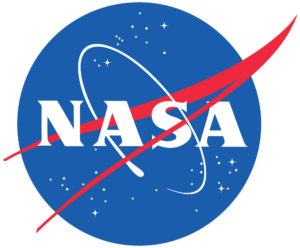
Red Cross Red Crescent Climate Centre
The Climate Centre (RCCCC) is a specialist reference centre of the International Federation of Red Cross and Red Crescent societies. The RCCCC helps provide climate information to reduce climate related risks for vulnerable communities. This group will play a strong role in coordinating city learning activities.
Represented by:Stockholm Environment Institute, Oxford
The SEI Oxford group works on issues of adaptive management and governance, particularly related to climatic risks and vulnerabilities, with expertise in water, food security, disaster risk reduction and livelihoods. We also have a growing contribution to the economics of climate vulnerability, impacts and adaptation.
SEI is involved in:
i) the proposal development and planning tasks and cluster work plans;
ii) co-leading the cluster on decision-making and urban governance;
iii) leading tasks on reviewing decision methods, cataloguing adaptation options and identifying climate change entry points in decision-making; and
iv) creating links with the new SEI Initiative on Climate Services (e.g. sponsorship of the International Conference on Climate Services).
Swedish Meteorological & Hydrological Institute
The Swedish Meteorological and Hydrological Institute (SMHI) is an expert agency under the Ministry of the Environment and Energy. Through unique expertise in meteorology, hydrology, oceanography and climatology, SMHI contributes towards greater public welfare, increased safety and a sustainable society. The SMHI is involved in driving the core climate science research within FRACTAL, along with CSAG, UKMO and others.
Represented by:The Polytechnic, University of Malawi
The Polytechnic, University of Malawi will work with other FRACTAL partners to co-produce climate knowledge and transfer lessons learned in other FRACTAL cities.
Represented by:University of Botswana
The University of Botswana will work with other FRACTAL partners to co-produce climate knowledge and transfer lessons learned in other FRACTAL cities.
Represented by:University of Eduardo Mondlane (Mozambique)
The University of Eduardo Mondlane will be involved in city learning dialogues – held to facilitate the process of understanding between various stakeholders and to support discussions around possible solutions. Researchers from the University will also be embedded within the organizations where city regional decisions are made to undertake mutually beneficial research at the city regional scale. This research will focus on improving understanding of the scientific climate information that is needed, and how this information can most effectively be brought to bear within these local decision-making processes.
Represented by:University of Namibia
The University of Namibia is in Windhoek, one of the cities where FRACTAL operates. City learning dialogues will be held in Windhoek to facilitate the process of understanding between the various stakeholders, and to support discussions around possible solutions. Researchers will also be embedded within the organizations where city regional decisions are made to undertake mutually beneficial research at the city regional scale. This research will focus on improving understanding of the scientific climate information that is needed, and how this information can most effectively be brought to bear within these local decision-making processes.
Represented by:University of Oxford (UK)
The University of Oxford will work alongside the core climate scientists and others to contribute to FRACTAL research on the physical effects of climate variability and change, particularly focusing on energy and water.
Represented by:University of Zambia
The University of Zambia is in Lusaka, one of the FRACTAL cities. City learning dialogues will be held in Lusaka to facilitate the process of understanding between the various stakeholders and to support discussions around possible solutions. Researchers will also be embedded within the organizations where city regional decisions are made to undertake mutually beneficial research at the city regional scale. The research will focus on improving understanding of the scientific climate information that is needed, and how this information can most effectively be brought to bear within these local decision-making processes.
Represented by:Zutari
Zutari (formally Aurecon Africa) provides engineering, management and specialist technical services for public and private sector clients across Africa and the Middle East. As engineering consultants and trusted advisors, Zutari co-creates an engineered impact that enables environments, communities and economies to thrive. At Zutari we are particularly interested in the application of climate change information to decision-making with regards to infrastructure planning, design and implementation for African cities. Our particular interest is in water and the environment, including water security, resilience, sustainability and flood risk management, but our interests also include energy, agriculture, transport and urban development as these all impact on wise decision-making for future African cities.
Represented by:





